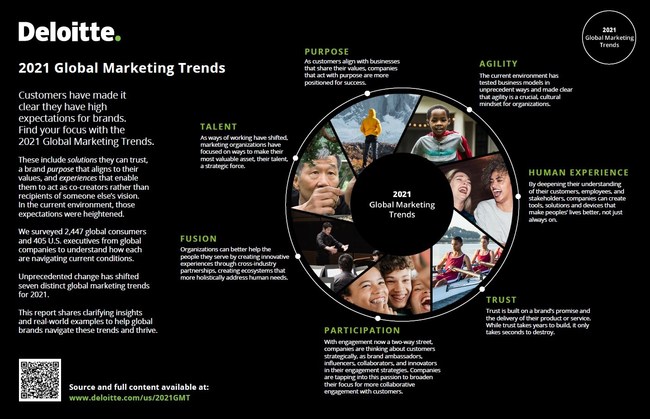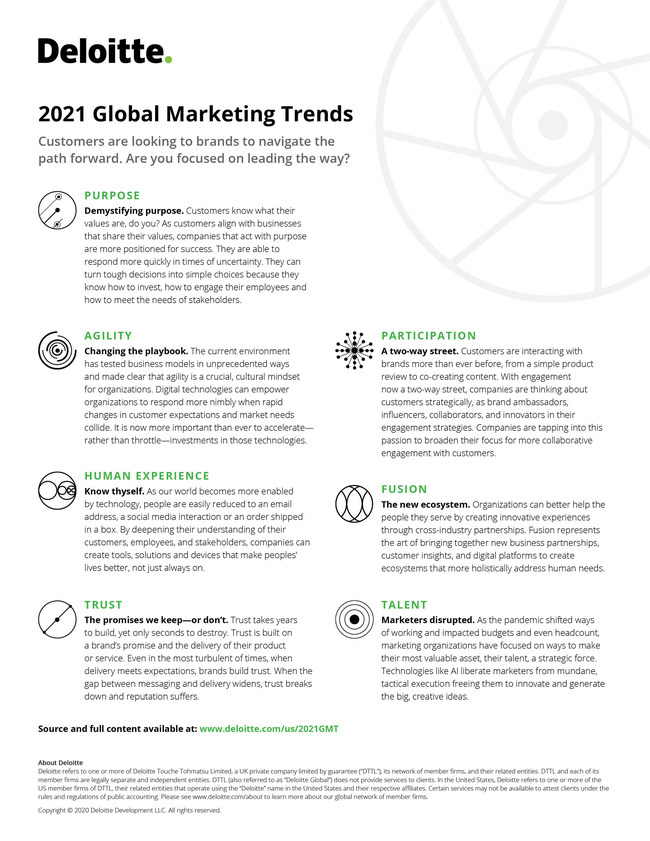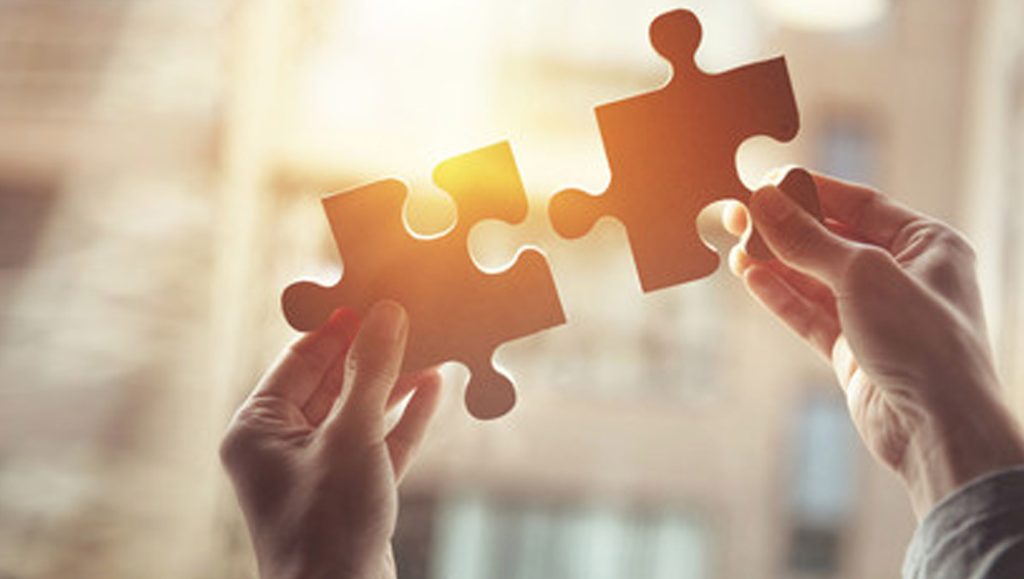Key takeaways
Predicting trends can be difficult in the most reliable of times, but following a year of widespread uncertainty, planning ahead has become more complicated than ever before. By conducting research during the pandemic, Deloitte was able to gather real-time insights that reflect the evolving needs of consumers and organizations. The resulting Global Marketing Trends Report is a timely and insightful look inside the needs of today’s consumer and a tangible resource that business leaders can look to when planning ahead for the year to come.


Read More: Zift Solutions Announces A Strategic Partnership With Vistex To Simplify Channel Incentive…
Notable findings from the report include:
- Customers are looking to brands for help — and rewarding those that can meet their most pressing needs.
- Customers look for brands with a purpose that aligns to their own values. They want brands to provide solutions they can trust, and experiences that include them as co-creators rather than recipients of someone else’s vision.
- Most brands and organizations who claim to be purpose-led clearly state their motives and have ways of holding themselves accountable to the promises they make.
- Customers are moving to digital channels with data suggesting this is a long-term shift that continues well after the pandemic subsides.
What does this mean for C-suite decision making?
Customers have made it clear they have high expectations for brands, and amid the current pandemic those expectations are heightened. Both consumers and companies are confronted with a global disruption that touches on every aspect of their day-to-day lives. Companies that are succeeding are typically those acting with transparency and clear intention, rooted in trust and the human experience, while also reacting in real time with the agility to meet the rapidly-evolving needs of their core consumer. With that in mind, this report was developed using feedback gathered during the pandemic to provide executives across the C-suite with real-time tools that can help guide brands through uncertainty and respond to customer needs as they unfold. This requires pivoting business models to align with evolving needs and fostering the human connection their consumers are craving.
Purpose: Built to flourish
Organizations that know why they exist and who they’re built to serve are uniquely positioned to navigate unprecedented change. They are often able to respond more quickly in times of uncertainty and can turn tough decisions into simple choices because they know how to invest, how to engage their employees, and how to meet the needs of stakeholders and consumers. This clear sense of purpose is directly impacting businesses’ bottom lines. According to Deloitte’s “Global Marketing Trends Consumer Pulse Survey,” 1 in 5 customers will support a brand that has taken positive brand actions while 1 in 4 will walk away if they do not agree with brand decisions. Keeping this in mind, organizations should look to put their “why” at the center of their operations and work to amplify purpose both within and outside the enterprise.
Agility: Changing the playbook
The current environment has tested business models in unprecedented ways and made clear that agility is a crucial, cultural mindset for organizations. According to Deloitte’s “Global Marketing Trends Consumer Pulse Survey” of 2,447 global consumers, 58% of respondents could name a brand that quickly pivoted its offerings to better react to the effects of COVID-19. Eighty-two percent said that these new, relevant offerings made them want to do more business with the brand. To ready an organization for these real-time shifts, CMOs and other C-suite leaders can look to digital tools such as social CRM and social sensing capabilities to forecast where conversations are headed and leverage customer feedback to rapidly prototype new offers.
Read More: VidMob Announces Successful Completion Of Type 2 SOC 2 Examination
Human Experience: Know thyself
Striving for efficiency is a logical path forward for organizations scrambling to find any possible means to preserve their business. However, when the pandemic made technology the primary way for customers to interact with companies, it proved insufficient in building connections. According to Deloitte’s HX In Uncertainty research, which surveyed 16,000 individuals earlier this year, more than 56% of respondents reported they specifically desire a more “human” experience from virtual environments. How can companies become a bit more human? Deloitte’s research suggests C-suite leaders stay proactive in aligning their values with shareholders and view their organizations as human entities that mirror — and support — the values of those they are built to serve.
Trust: The promises we keep – or don’t
Trust is built on a brand’s promise and the delivery of their product or service. Even in the most turbulent of times, when delivery meets expectations, brands build trust. When the gap between messaging and delivery widens, trust breaks down and reputation suffers. While trust takes years to build, it only takes seconds to destroy. In today’s digital age, data privacy is often at the core of building consumer trust and Deloitte found that consumers are 2.8 times more likely to continue purchasing from a brand after a data breach when brands are transparent in their intentions. Deloitte’s “Consumer Pulse Study” reported that even during the global pandemic, a third of respondents most concerned with data privacy are willing to share data with businesses helping with the pandemic given that they were trustworthy organizations operating both transparently and ethically.
Read More: SalesTechStar Interview with Daniel Rodriguez, Chief Marketing Officer at Simplr






















